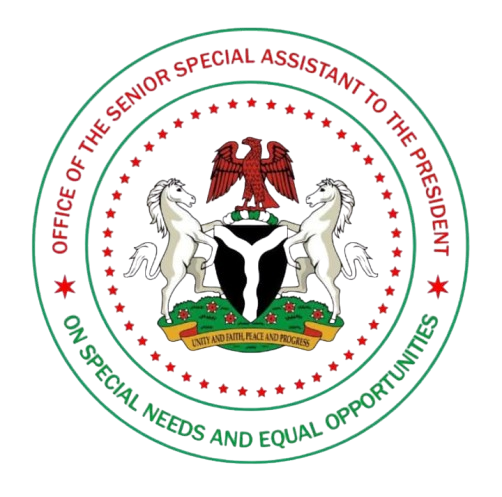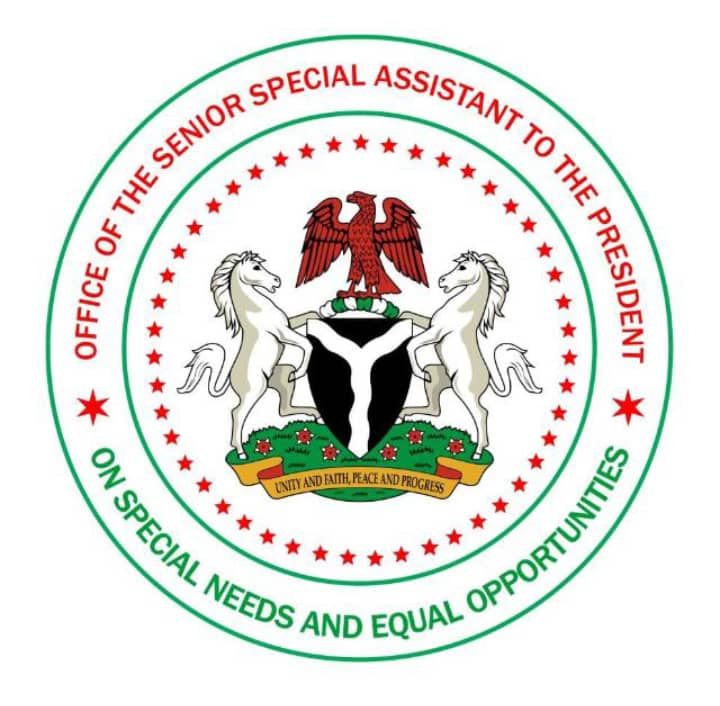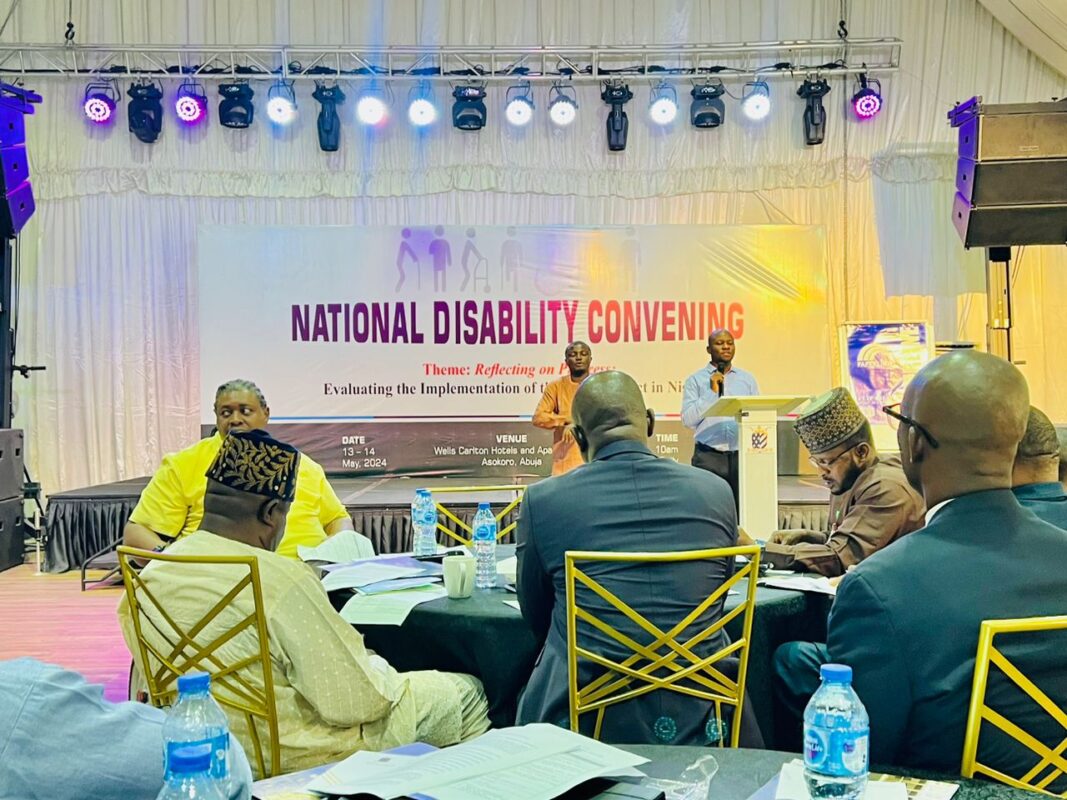
By Lanre Oloyede
Senior Special Assistant to President Bola Ahmed Tinubu on Special Needs and Equal Opportunities, Hon. Mohammed Abba Isa, has warned that any public office which fails to comply with the provisions of the National Disability law on accessibility of public buildings by Persons With Disabilities faces risk of being locked up.
Hon. Abba Isa gave the warning Monday at the 3-day National Disability Convening conference organized by the National Commission for Persons With Disabilities, NCPWD in collaboration with Disability Right and Advocacy Centre, DRAC with funding from the Ford Foundation.
According to the organizers, the conference was organized to review progress made on the implementation of the Discrimination Against Persons with Disabilities Prohibition Act, 2018, including the contributions of the Foundation’s grantees/partners, and discuss strategies for effective future implementation post-moratorium.

It is also meant to validate draft reports by the Foundation on the ‘review of its grantmaking on disability inclusion in Nigeria’ and the ‘national disability inclusive data indicators’, while exploring trends in data collected by various stakeholders, and to discuss lessons learned from the Foundation’s disability-inclusive grantmaking and identify key insights to inform future program development and strategic decision-making.
Addressing journalists on the sideline of the event, the Senior Presidential aide noted that the implementation era of the Discrimination Against Persons With Disabilities (Prohibition) Act 2018 is already in full swing and needs the cooperation of the Ministry, Departments and Agencies as well as other stakeholders in the inclusivity movement.

The SSAP said: “We are here to review the strategy and progress made so far, post moratorium, so that we can move into implementation proper.
“Very soon Mr President will launch the National Accessibility committee to make sure that they monitor this mechanism..

“The implementation of the Act is already taking effect but there’s need to create more awareness because many people are not aware of the existence of the national disability law and ignorance of the law is not an excuse. So we need to partner with Ministry of information to make sure that they create awareness. The process of implementation is gradual, accessibility is not something you can achieve overnight, but with the collaboration with NCPWD, we are doing wonderfully well in trying to see that we create awareness and make necessary collaboration with the agencies that are responsible for the implementation strategies. So we have gone far .
“All these MDAs, very soon you will see that we are going to start with the pilot phase and any MDAs that fails to comply, we are going to seal them. It cannot be business as usual. We are not going to reveal all our strategies to the media but the NCPWD and my office have come up with a very robust strategy for the implementation.

The presidential aide really commended the Ford Foundation for what they are doing for the disability community, while urging other partners to support the cause of disability in line with the Renewed Hope Agenda of President Tinubu.
Earlier in his address, the Senior Special Assistant to the President noted that while the passage of the Act was a significant achievement, however, it’s true impact lies in its implementation, that is, in the tangible changes it brings to the lives of persons with disabilities across the nation.

The SSAP said: “Today, as we gather to evaluate how far we have come and to forge strategy for effective implementation of the Disability Act, let us not lose sight of the ultimate goal, which is a society where every individual, regardless of their abilities, can live with dignity, respect, and opportunity. Let us seize this moment to reaffirm our commitment to building a more inclusive and equitable future for all.
“One of the fundamental pillars of effective implementation is the establishment of robust monitoring and evaluation mechanisms. We must hold ourselves accountable for the promises we have made and the commitments we have undertaken.
“As a key agent in the quest for implementation of the National Disability Act, my office is committed to ensuring that no stone is left unturned in our efforts to achieve full compliance and implementation. We recognize the challenges that lie ahead, but we
are undeterred in our resolve to overcome them.
“But we cannot do it alone. We need the support and partnership of Civil Society,
development partners and all segments of society. Together, we can create a future where disability is not viewed as a barrier, but as a unique aspect of human diversity to be celebrated and embraced.

“My office is connected to 774 local government and the 36 states including the FCT and we are open to partnership and collaboration from everybody including development partners, donor agencies, OPDs, CSOs MDAs and other stakeholders in the disability community.”
While delivering the first paper of the day, Mr Rasak Adekoya, in his presentation, stated that nine domains of concern have been identified as strategy for implementing the National Disability Act.
Mr Adekoya explained some of the domains to include wether or not each state government are domesticating the National Disability Act as well as if they are implementing it.
He noted that currently we have about 23 States that have domesticated the law, and of these 23, only 10 have set up disability agencies. He queried that even those who have set up the agencies, to what level are they implementing the Act?
Mr Adekoya mentioned other domains to include Accessibility of Public Infrastructure and Judiciary and security institutions.
Xxxxxxxxxxxxxxxxxxxxxxxxxxxxxxxxxxx


